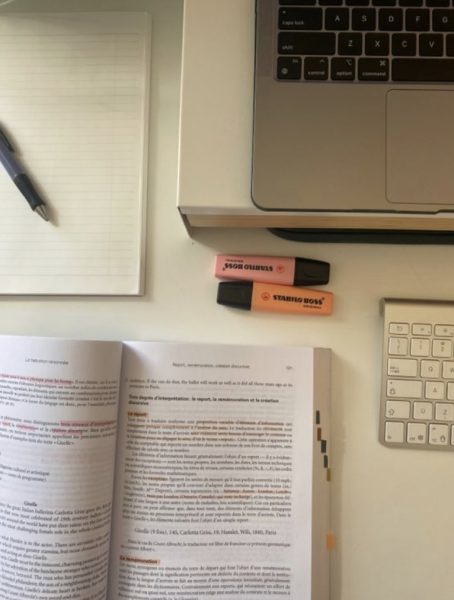NOT RAISING MINIMUM WAGE IS CONSEQUENTIAL
There are many benefits to raising the minimum wage.
March 3, 2016
Raising minimum wage: a widely debated topic that saw little positive action in 2015. In Florida, the minimum wage is currently $8.05 per hour ($5.03 for occupations that earn tips). Working a 40 hour week and surviving on this salary is practically impossible without additional help. Based on these facts, the minimum wage should be raised.
Complaints regarding those who rely on government subsidies are common; however, raising the minimum wage would resolve this problem. For example, in the U.S., the poverty level for an average family of four is $24,250, assuming two of these people are adults and two are children not of working age, the family would receive only $30,927 a year, including taxes, with both parents working full time. Although this is over the 100% poverty line, the family would remain under the 187.5% poverty line of $45,465. Poverty lines are typically estimated at a county’s mean income or consumption, so for many to qualify for various levels of poverty it is extremely concerning to a county. A single mother with two children would only receive $15,463 annually, including taxes, which is under $20,090, 100% poverty line for a household of three. These numbers are borderline poverty level and qualify these families to benefit off of government subsidies. However, if the minimum wage were raised to a point where these families would no longer live on the poverty line, then they would not rely on government subsidies, such as food stamps (which cost Americans only $36 in taxes each year), to get by.
Freshman Adriana Heredia says, “[The minimum wage] should be raised. I’m actually close to people working minimum wage; my aunt worked [a] minimum wage […] job and she lost her house. I think [the U.S.] should provide more. There are not many jobs [available] anymore because once they open up, everyone rushes in and then all that’s left [is] minimum wage.”
Over 77.2 million Americans, 58.7% of U.S. workers, worked for minimum wage in 2014. About 51% of these workers were above the age of 25 and they worked 61,883 of 77,207 hours each year. The majority of these hours are worked by women, 39% of whom are the head of their low income households. Due to these reasons, a huge sum of minimum wage workers are single mothers. Some argue the women should send the child to another family member, but, often, there is no family to take the child in and the women has to support the child(s) on her own. This leaves an already impoverished mother in a stressful situation and 3.7 million women working more than one job to attempt to support their families. This harsh reality is one of the main reasons minimum wage needs to be raised; as long as minimum wage is not a living wage, the average minimum wage worker will continue to struggle to support their family.
After the stock market crash in 2008, 7.9 million Americans lost their jobs, only 8,000 of which have been replenished by President Obama, leaving little hope of ‘finding a better job’, which is an argument continuously used by opposers. At times, this is countered by ‘Why don’t they go back to school?’ This seems like a good argument until one recognizes that they don’t have time. An adult working a 40 hour week and sleeping a recommended eight hours a night has only 72 hours of free time each week. These 72 hours do not include time they must spend on hygiene, grocery shopping, laundry, caring for others, cleaning, commuting, doctors visits, exercise, cooking, eating, repairs, etc. Assuming each of these takes an hour each day, that leaves a person with 30 hours. If this adult now was to take two college classes and spend the recommended five hours on homework each week, they would be left with four hours to deal with any miscellaneous activities such as going to the DMV, filing taxes, and changing health care plans.
In addition to this, the average American must earn, on average, $18.92 per hour to afford a two bedroom apartment—a salary that is $11.67 higher than the federal minimum wage—and purchase $800-$900 worth of groceries. This is the majority of the $1, 288 paycheck two adults in the family would receive each month and leaves many unable to neither afford housing nor other costs of living. This continues to enforce the idea the minimum wage is not a living wage and should be increased.
Often people propose that when minimum wage pay is raised, the price of goods will also increase, but this isn’t necessarily true. Since 1978, CEO’s paychecks have grown by 937%; today, the average CEO earns 300 times the amount of a minimum wage worker, whereas in 1978 they only earned 30 times the amount. Putting this into perspective is as simple as realizing a minimum wage worker earns $16,744 a year while a CEO makes $5,023,200 each year. Of course one deserves a higher salary for working harder, but when the top tier of an industry’s last 5 digits in their salary is higher than the bottom tier’s entire salary, there is a problem. In these industries, raising the minimum wage will not increase the price of products unless the CEOs continue to increase their salary as well. On the other hand, this would increase the price of goods sold by small businesses.
Senior Ivie Brown says, “Minimum wage is definitely a tricky subject. As someone who works in food services I do think waiters should have their wages raised at least a dollar. You would be surprised at the amount of people who don’t tip to waiters who just trying to get through college, or pay the bills and are depending on those tips.”
Increasing the minimum wage would make things more expensive, but only gradually. With a steady, and health, inflation rate of 3% each year, it would take 14 years to make the minimum wage of $10.10 an hour to no longer be a benefit to workers. For 14 years families will not struggle to survive and have to explain to their children why they can’t do the same things as their classmates. This would be one more step towards more universal equality. This would be groundbreaking.


































